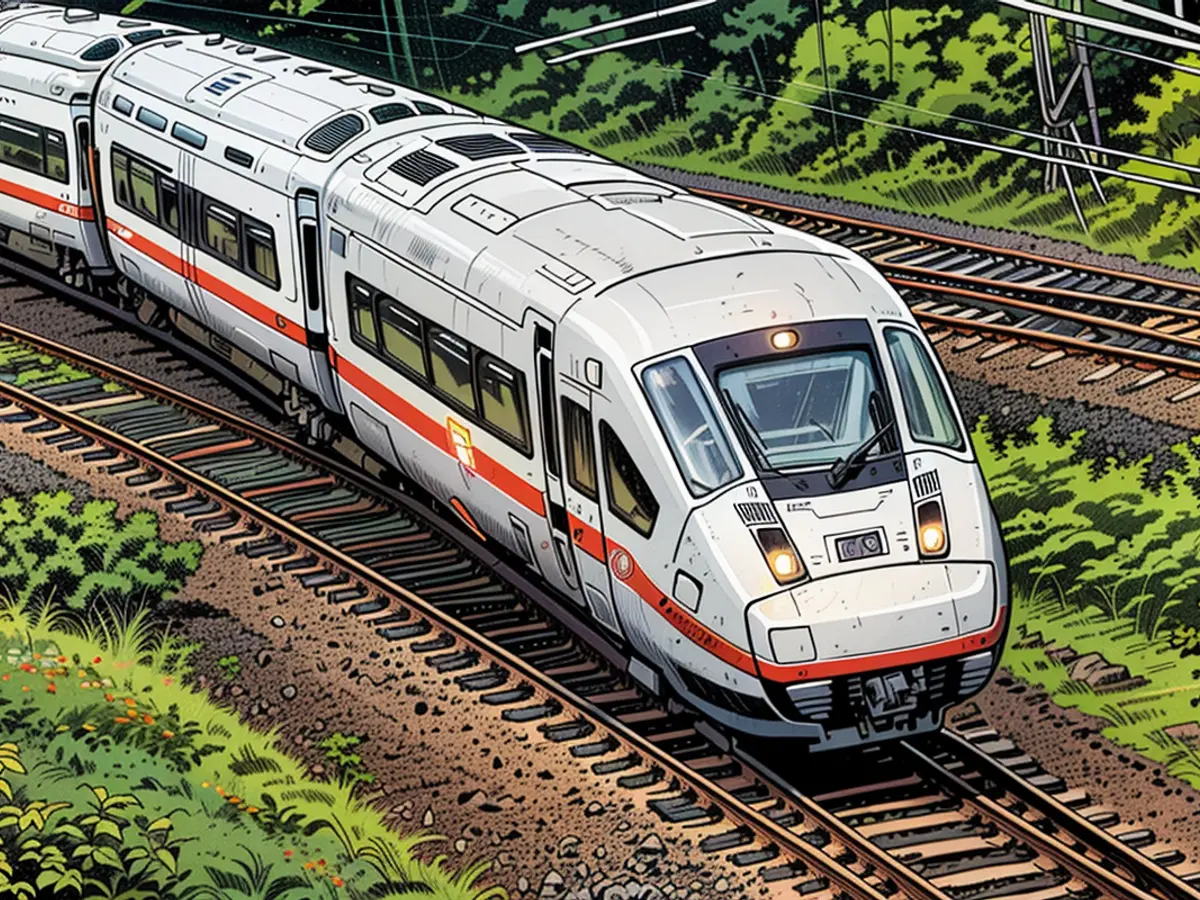Table of Contents
- How long will the route be closed?
- What will be running during the closure?
- Are there any further restrictions?
- Is this already the comprehensive renovation?
- Why doesn't the railway company do the work simultaneously?
- Why is a comprehensive renovation necessary?
- Berlin-Hamburg railway closed for months due to construction work
The railway line between Berlin and Hamburg is one of the busiest in the country. Around 30,000 passengers travel between the capital and the Hanseatic city every day. However, the infrastructure is outdated and is to be comprehensively renovated. For this purpose, the connection will be interrupted twice for several months. The first closure begins this Friday. Here's what passengers need to know.
How long will the route be closed?
The construction work is scheduled to take place from this Friday until the timetable change on 14 December. This will result in significant restrictions in long-distance and regional traffic for around four months. "More than 74 kilometers of track and 100 switches between Wittenberge and Ludwigslust, as well as between Hamburg and Büchen and around Hagenow Land, will be renewed," the railway company announced.
What will be running during the closure?
Long-distance trains will be rerouted westwards via Stendal, Salzwedel, Uelzen, and Lüneburg. The travel time between Berlin and Hamburg will be extended by 45 minutes. Since this route is partly only single-track, only one long-distance train will run per hour instead of the previous two. A replacement bus service will be set up for commuters between Hamburg and Wittenberge, also serving Ludwigslust. The connections are already incorporated into the online timetables and can be accessed.
Are there any further restrictions?
Yes. From this Friday, construction work will also begin between Hamburg and Schwerin – until 29 September. No ICEs will be running there during this time. There will be a direct connection with replacement buses. Additionally, one Intercity train will run via Lübeck each day.
On the other hand, an important high-speed route is now free again: There are no restrictions for travelers between Cologne and Frankfurt. They had to cope with detours due to construction work for almost four weeks. The tracks and switches along the route have been renewed. "We finished on time," said the head of the railway infrastructure company DB InfraGO, Philipp Nagl. Consequently, all ICEs are now running unrestricted again. The railway company is now serving the stations Siegburg/Bonn, Montabaur, and Limburg Süd again.
Is this already the comprehensive renovation?
No. The railway company refers to the comprehensive modernization of more than 40 heavily traveled rail corridors in Germany as the comprehensive renovation. The company and the federal government want to gradually restore the outdated track network to a functional state at least between the important junctions in this way – and to improve the reliability of rail traffic.
The renovation of the first corridor on the so-called Riedbahn between Frankfurt and Mannheim has been underway for about a month. Next year, the route important for freight traffic between Emmerich and Oberhausen, as well as the route between Hamburg and Berlin again, will be the focus.
From August 2025 to April 2026, there will be another closure between the Hanseatic and the capital cities. Tracks, switches, overhead lines, signaling, and safety technology – everything will be renewed during these almost nine months. The route should then be free of disruptions for years and trains should be able to run more punctually than before.
Due to the age of the route, some work can no longer wait. "Construction work in 2024 is necessary to ensure that trains can continue to run at full speed and there are fewer disruptions to infrastructure," it says in a presentation by Deutsche Bahn. The company has intensively examined whether the construction measures can be bundled with the general renovation. However, legal deadlines for maintenance must also be met, making a delay impossible.
Why is a general renovation necessary?
Deutsche Bahn is as unreliable as it has been for many years. In the first half of 2024, almost every third long-distance train was late. The company blames this mainly on the dilapidated infrastructure, into which too little has been invested for decades. The federal government is now catching up with billions. With every renovated main corridor, reliability in the entire rail network should gradually improve.
For passengers, this initially means additional burdens due to construction-related closures. It may take several more years before any noticeable improvement is felt.
During the first closure, which starts this Friday and lasts until the timetable change on 14 December, passengers will need to contend with significant restrictions due to the renewal of more than 74 kilometers of track and 100 switches between Wittenberge and Ludwigslust, as well as between Hamburg and Büchen and around Hagenow Land. To mitigate this, long-distance trains will be rerouted, resulting in extended travel times, and a replacement bus service will be provided for commuters between Hamburg and Wittenberge.
In addition to the closure between Berlin and Hamburg, construction work is also set to begin between Hamburg and Schwerin, with no ICEs running during this time but with a direct replacement bus service available. These restrictions are part of the comprehensive renovation of over 40 heavily traveled rail corridors in Germany, as the railway company and the federal government aim to gradually restore the outdated track network and improve rail traffic reliability.
Read also:
- Fear of escalation in the Middle East: US Secretary of State Blinken travels to the region again
- Government circles: US Secretary of State Blinken to travel to Middle East again
- Bridging days 2024: How you can double your vacation this year
- Germany has wanderlust: how tour operators and airlines are looking ahead to the next travel year








